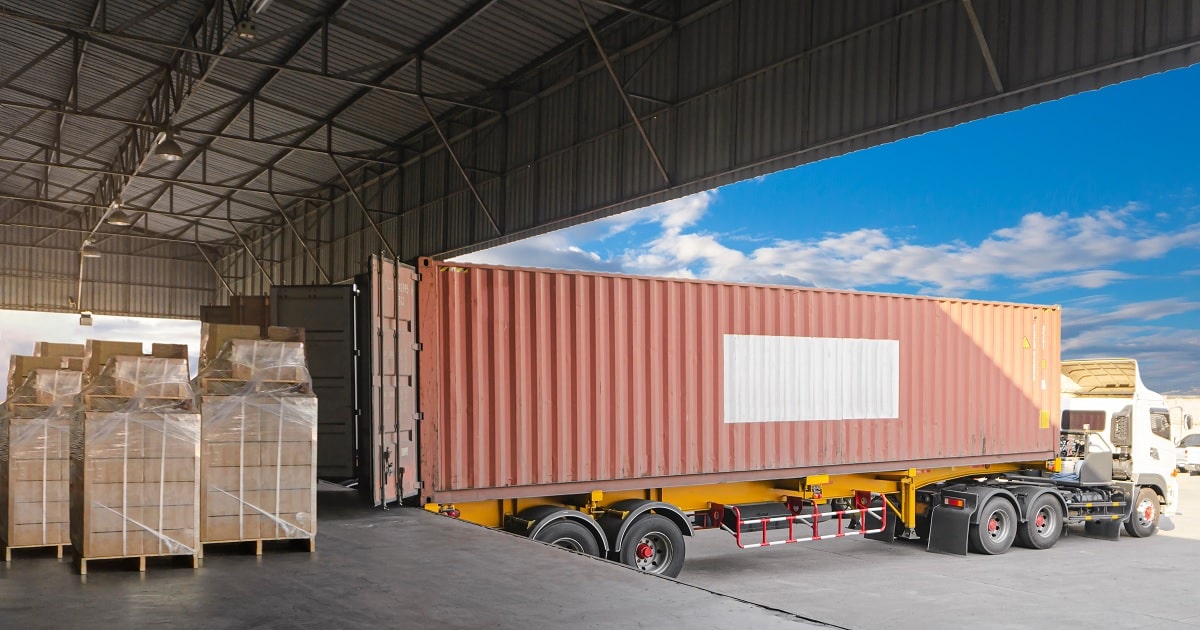
Warehousing and Distribution
Article | July 11, 2023
Oracle, a leading provider of computer technology, published a paper analyzing how supply chain managers should use change as a catalyst in "inspiring and engaging employees." In the report, Oracle highlights how organizations across the world are going through radical shifts in the way they operate.
Customers need quick, convenient, and customized solutions today. Employees also have higher expectations, looking for companies that are a match for their values, provide flexible working arrangements, and offer cutting-edge tools. Shareholders and investors also want more, which forces businesses to focus on making money in ways that are sustainable and diverse.
See Change as an Opportunity
The companies that are most successful, according to Oracle, are those who see change as just another opportunity to reinvent, and the company lists four ways supply chain leaders might find such an opportunity:
Boost employee engagement
Aim for sustainability and responsibility in management
Be quick to respond to disruptions in the supply chain
Exceed consumer expectations
In the paper, Oracle reports that instead of adapting to the change, organizations must be able to stay on top of challenges and prepare well in advance.
Align with an Employee-Centred Culture
Leaders must be able to attract well-matched talent, with the skills to not just fulfil job roles but also drive innovation. Today, people value a work-life balance where they have time to pursue their non-work interests, spend time with their families, and create a diverse, and inclusive world. According to Oracle, this is a significant consideration, and organizations that meet the demands of this new workforce will have a competitive edge in hiring the top talent.
Looking Forward
The Great Resignation has been a hot topic in HR, but the truth is it affects all aspects of business, and importantly, the supply chain, and in the end, the ability to provide smooth customer experiences. HR, customer experience, and supply chain leaders must synergize to become an employer destination to reckon with in order to succeed.
Read More

Warehousing and Distribution
Article | June 16, 2023
In the past couple of years, supply chain management has witnessed massive disruption. The implications of the pandemic have put pressure on manufacturers to revisit and reimagine how they manage their supply chains. This is why ERP software is so mission critical in supply chain management. It not only helps supply chain chiefs reduce overhead costs but also enhance efficiencies and timely deliveries.Here are a few ways ERP plays a role in supply chain management to keep it moving.
Complete Visibility
Having a 360-degree view of the supply chain is integral to making the right decisions regarding procurement and purchase of materials and inventory. It also allows suppliers to have complete control and course correct when necessary. The insight into the complete supply cycle allows suppliers to respond to customer queries better.
Inventory Tracking
ERPs are truly a one stop shop for manufacturers. They feature extensive inventory tracking on one system so manufacturers are in the loop about inventory control and can better optimize their inventory and resources. For manufacturers it is crucial to know where their inventory is, what has been shipped, what is on hand at all times. With ERPs, it becomes cheaper to keep a stock of the inventory and place orders when it’s running low.
Vendor Performance
Vendor performance is an essential aspect of supply chain management. Being able to compare vendors, measure certain quality and quantity metrics and identify bottle necks help suppliers choose the right vendor as well as gives purchasing departments the power to negotiate for better pricing by consolidating purchase. ERPs allow suppliers to do all the above and more.
Procurement
Procurement of goods can be a complex process if done without the right tools. It also impacts the whole supply chain so it is doubly imperative to ensure the procuring and supply of goods is on time. This is especially true in an environment of custom manufacturing. Add to that the requirement of procuring products with lengthy lead times, manufacturers need to take into considerations product that need to be ordered long before they are even designed. ERPs allow manufacturers to keep all departments including engineering and warehousing to work in sync and plan to procure goods on time.
Real-time Reports
Reporting is labor intensive and can be inefficient when it comes to gathering and processing data. With ERPs, manufacturers can generate reports in real-time and all manual data collection processes are replaced with automation, saving time and money in viewing the insights into the movement of products in the supply chain. It enables manufacturers to get a better understanding and make timely decisions that improve the overall efficiency of the supply chain.
To Conclude
ERP systems offer endless opportunities for manufacturers to improve their processes, save time and resources and optimize and enhance inventory planning. With the right tools, it is possible to establish supply chain management that outperforms and is resilient even in disruptive times.
Read More

Management
Article | June 21, 2023
Risk management has been a problem for as long as supply chains have existed. Because of the interdependence of all its connections, even a minor issue in one isolated region has the potential to jeopardize a whole global supply chain. As a result, when major global trends and events occur, the potential for widespread supply chain disruption is enormous.
Global supply chain risks and market disruptions have reached an all-time high. The most notable of them is the COVID-19 pandemic. In a 2020 survey, the Institute for Supply Management discovered that 95% of companies faced operational issues due to the pandemic. As a result, business executives all around the globe believe that if they want to be more resilient and competitive in the present market, they need to modernize and make significant changes to their supply chain strategy.
Other recent factors that have had a significant impact on traditional supply chain practices include the fast pace of change in consumer behaviors and a pretty unstable trade and political environment.
In the last ten years, e-commerce spending has tripled, and internet shopping had increased by 149% in 2020 compared to the previous year. With the growth of e-commerce, there has been a rise in customer demand for faster delivery and more personalized shopping experiences. The Amazon Effect refers to the growing expectation for same-day delivery and its effect on businesses and logistical networks. To be resilient enough to react to these rising demands, supply chain managers have had to make fast and significant modifications to their logistics and warehousing networks, as well as discover new ways to collaborate with third-party fulfillment partners.
Even before the impact of COVID-19, American businesses were attempting to reduce their dependence on foreign manufacturers and suppliers. Foreign tariffs and trade policies had become more unpredictable by 2019, and businesses were seeking technological solutions to make the supply chains more self-sufficient and resilient. As a result, integrating digital transformation and Industry 4.0 technology into supply chain operations is quickly becoming a top concern for global business leaders.
How does Supply Chain Resilience Work?
A flexible contingency plan and the ability to react swiftly to operational disruptions are important characteristics of effective supply chain management. However, to be truly resilient, a supply chain must be able to predict and anticipate disruptions and, in many cases, avoid them entirely.
Strategic supply chain planning is an important step in achieving resilience because it synchronizes all supply chain components and increases visibility and agility. Supply and demand needs are better understood, and production is synchronized due to supply chain planning. This integrated, forward-thinking approach assists businesses in better anticipating problems, reducing the impact of supply chain disruptions, and improving overall operations.
When a business has the digital systems to analyze and make sense of Big Data, it significantly improves supply chain resilience. Artificial intelligence-enabled systems can curate disparate data sets from across the business and the globe. To discover trends and opportunities, news, competitor activity, sales reports, and even customer feedback can be examined together. The system's connected devices are constantly monitored, providing real-time insights about where and how processes can be automated and improved. For instance, AI, machine learning, and modern databases acquire and handle Big Data and analyze and learn from it in an almost infinite number of ways. This enables intelligent automation across the network and provides supply chain managers with the real-time insights they require to respond quickly to disruption and unexpected events.
Supply chain managers have traditionally sought to limit the number of partners and suppliers in their network to minimize operational and logistical complexity. This approach is based on the stability of the social, environmental, and political systems. Unexpected disruptions in one region can slow or even stop network operations across the board. Supply chain resilience technologies, such as blockchain, sensors, and advanced analytics, enable supply chain managers to monitor complex partnerships and supplier contracts even in the most remote parts of their network.
Profitability in the supply chain has always been dependent on minimizing excess and keeping inventories as lean as possible. Capacity and inventory buffers are expensive, and supply chain managers have often bet against disruptions to keep prices low. When the pandemic struck, many businesses discovered the real cost of the gamble. Supply chain operations can involve on-demand manufacturing, virtual inventories, and predictive demand forecasting using digital supply chain technologies to remain resilient, even in times of unexpected disruption.
Benefits of a Resilient Supply Chain
Finding a successful balance between supply and demand is a significant issue for any supply chain manager in an increasingly competitive market. Many businesses that have cut costs on diversification, supply chain technology, and other resilience measures have lately discovered the true cost of those choices. However, when businesses engage in diversification, supply chain technologies, and other resilience measures, they can achieve a variety of business benefits, including:
More efficient operations: Better resilience often results in less risk and a greater capacity to invest in innovation and growth. For example, according to a 2020 global business analysis conducted by Bain and Company, businesses that prioritized their investment in supply chain resilience had up to 60% quicker product development cycles and were able to increase production capacity by up to 25%.
Enhanced productivity: Resilient supply chain solutions lead to the overall system increased productivity. According to a McKinsey 2020 survey, supply chain leaders from across the world report increased productivity due to resilient supply chain systems, and 93% of those surveyed plan to prioritize resilient supply chain strategies for investment in the next year.
Risk reduction: Supply chain activities are often the most vulnerable to risk and loss in many businesses. Supply chains, by nature, are geographically distributed and functionally complex. As a result, supply chains are particularly vulnerable to risk. Resilient supply chain technologies minimize risk by providing insight into all network operations and enabling companies to improve and adjust their processes and logistics in real-time.
Technologies for an Agile Supply Chain
Digital transformation and modern supply chain technology provide businesses with the resilience and competitive advantage they need to react swiftly to disruptions and opportunities.
Artificial intelligence (AI): AI-powered supply chain systems can offer deep procedural and operational insights by gathering and analyzing data from many sources. Predictive analytics and Big Data analysis can assist in predicting risk and demand and recommending measures and reactions in the company.
Machine learning: Machine learning enables the discovery of patterns in supply chain data and the identification of these influential factors - all while constantly learning. This enables supply chain managers to react fast with the finest workflows and operational strategies available.
Industrial Internet of Things (IIoT): The IIoT network in a supply chain comprises connected devices and objects with sensors and unique IDs that allow them to transmit and receive digital data. They collect information and communicate with the central system. AI can analyze and understand this data to enable quick decisions and intelligent automation of supply chain operations and procedures.
Additive (3D) printing: Smart factories can quickly reprogram 3D printers to produce specific products on-demand without disrupting regular business operations in the long run. The accessibility of potential virtual inventories enables supply chains to defend themselves against disruption.
Robots and autonomous things: Robots and drones, which are intelligently automated for speed, efficiency, and accuracy, can adapt their operations on the go to meet quickly changing requirements. They also reduce the risk of harm by eliminating overly repetitive or dangerous tasks from human workers.
Modern databases: The resilient supply chain solutions rely on Big Data, advanced analytics, and real-time insights from modern databases. Supply chain technology can be improved to operate faster and most resilient when equipped with a modern ERP system and an in-memory database.
Resilience means more than just surviving a disruption in operations. A fully resilient supply chain and businesses survive hardship and use it to innovate and improve their business. Building a resilient supply chain is very important in this modern era because disruptions like a pandemic, wars, climate change, etc., are occurring a lot these days. A resilient supply chain helps businesses to survive and thrive even during tough times. To read more about ways to boost supply chain performance, click here.
FAQ
What is supply chain resilience?
Supply chain resilience refers to the supply chain's capacity to be prepared for unexpected risk events, react and recover swiftly to potential disruptions, and grow by shifting to a new, more desirable state in order to improve customer service, market share, and financial performance.
How is supply chain resilience measured?
A supply chain's resilience index is calculated by aggregating its company's resilience index. Given that supply chain company's performance influences overall supply chain performance, supply chain resilience should be measured using the companies' resilience index.
{
"@context": "https://schema.org",
"@type": "FAQPage",
"mainEntity": [{
"@type": "Question",
"name": "What is supply chain resilience?",
"acceptedAnswer": {
"@type": "Answer",
"text": "Supply chain resilience refers to the supply chain's capacity to be prepared for unexpected risk events, react and recover swiftly to potential disruptions, and grow by shifting to a new, more desirable state in order to improve customer service, market share, and financial performance."
}
},{
"@type": "Question",
"name": "How is supply chain resilience measured?",
"acceptedAnswer": {
"@type": "Answer",
"text": "A supply chain's resilience index is calculated by aggregating its company's resilience index. Given that supply chain company's performance influences overall supply chain performance, supply chain resilience should be measured using the companies' resilience index."
}
}]
}
Read More

Article | April 20, 2021
You might be wondering what the benefits are of benchmarking. Well, imagine you are training for a 100 metre sprint in your district. What would be the key number, or metric that you would need to know?
It would, of course, be what the winning time was when this race was last run in your district. Without that information, you don’t know what you’re trying to target. It would be impossible to know if you’ll have any chance at all of winning the race.
It’s exactly the same in business. If, for example, you are concerned about the pick rates in your warehouse, or your transport costs, or your inventory accuracy, benchmarking can help you because it can show you exactly where your performance is compared to others in your industry.
A few years ago, I was working with an automotive parts business. They had a little issue with their picking productivity in the warehouse. They wondered how good it was, whether they could improve it. They actually thought it was okay.
We looked at the figures and compared them with other businesses. This helped us realise that their picking productivity should be three times better than it was. And believe it or not, over a few months they did begin to improve their productivity.
Why? Because benchmarking opened their eyes to the fact that they were at a level quite far below others in the industry.
That’s the beauty of benchmarking. Until you know what others are doing, you can’t be sure how good your performance is.
If you’ve never tried benchmarking, there are three ways you could do it.
1. Informal Benchmarking
This exercise would involve you measuring particular functions or aspects of your business and comparing that against other parts of your business. Let’s say you have a warehouse operating in one city and another operating in another city. You might start to measure the same metrics and see which one is performing better.
You might know other people in the industry who are also operating warehouses so you might agree to share some data with them.
This is probably the easiest way to start off, but it has some downsides:
You’re only measuring against a very small sample size. If all of you in the pool are not that good, how would you know what good is?
You have to make sure that the businesses are similar and you are measuring things in exactly the same way. It’s very important in benchmarking to have a standard way of applying the metric.
2. Formal Benchmarking
This can work for much larger businesses. Perhaps you have operations in many different countries. You could agree a formal structure for how you are going to measure performance. You could do monthly or quarterly benchmarks with all the parts of your international organisation. You could learn from each other and share best practice.
This method is okay but you’re not getting access to a very large pool of results to measure yourself against. You will find that companies are very reluctant to give out benchmarking data. You might also be operating in an environment where the performance is quite low right across the business.
3. Hire a Professional Benchmarking Firm
This is the ultimate way to do it, although there are not a lot of professional benchmarking firms such as ours around. If you do manage to find one, you will quickly realise that there are significant benefits to be had by bringing in the professionals:
The metrics are put together in exactly the same way: When we do a benchmarking exercise for our consulting clients, we go through a very robust data-gathering process and then make sure all the costs, for example, are in the same buckets as everyone else’s in the database.
You gain access to a big pool of results: Professionals have measured hundreds, if not thousands, of companies. This enables you to say, ‘Our company is this size, it operates in this industry, these are the characteristics of our supply chain, who else in that pool of results is like us? We want to be measured against them.”
It’s no good measuring the performance of a grocery retailer, for example, against an industrial product supplier. They have different supply chains. You need to be measuring like with like.
Read More